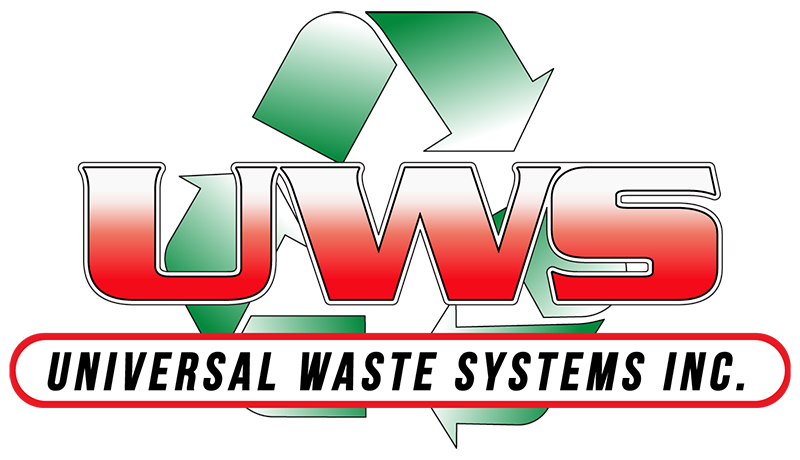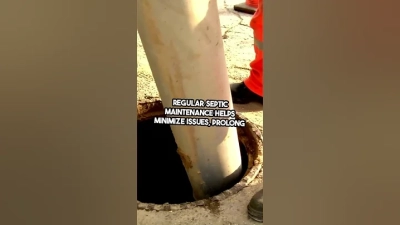Blog
Essential Insights for Understanding Septic Services and Their Benefits
In today's world, maintaining a safe and healthy environment is essential, especially when it comes to managing waste disposal systems. This is where septic services come into play, offering a vital solution for homes and businesses not connected to municipal sewer systems. Understanding the intricacies of septic services can empower property owners to make informed decisions that enhance their living conditions and protect the surrounding ecosystem.
Septic services encompass a range of processes, including installation, inspection, maintenance, and repair of septic systems. By delving into the benefits and importance of these services, property owners can realize how proactive management of their septic system not only ensures compliance with health regulations but also prolongs the lifespan of their infrastructure. In this blog, we will explore essential insights that will equip you with the knowledge needed to navigate the complexities of septic services effectively and appreciate their critical role in modern waste management.

Key Components of Septic Systems: How They Work and Their Importance
Understanding the key components of septic systems is crucial for homeowners, particularly in areas where these systems are prevalent, such as rural communities. Septic systems play a vital role in managing wastewater, effectively separating solids from liquids and treating waste through natural processes. By utilizing a septic tank and a drainage field, these systems help minimize environmental impact, especially on local water sources, which has become a pressing concern in states like Michigan, where roughly 1.5 million homes rely on them.
The importance of septic systems extends beyond mere function; they support health, sustainability, and livability in urban and rural settings. As we become increasingly aware of the impacts of our infrastructure on public health and environmental sustainability, understanding how septic systems work—and their integration into broader urban planning—is essential. Innovative septic solutions, such as nitrogen-reducing technologies, are gaining traction among homeowners, driven by a desire for eco-friendly alternatives that protect groundwater quality. By prioritizing a better understanding of these systems, we can ensure they continue to serve their communities effectively while promoting a healthier environment for future generations.
Understanding Septic Systems: Key Components and Their Benefits
Common Issues with Septic Systems: Prevention and Maintenance Tips
As SepticSmart Week approaches, it’s crucial for homeowners to recognize the significance of regular maintenance and timely intervention for their septic systems. Common issues such as clogs, leaks, and tank overflows can occur if systems are not properly cared for. According to the U.S. Environmental Protection Agency, approximately 20% of septic systems fail within the first 20 years, primarily due to neglect. To prevent such failures, routine inspections and maintenance every three to five years are recommended.
Preventive measures are the key to extending the lifespan of a septic system. Homeowners should be proactive about what goes down their drains, as improper waste disposal can lead to significant issues, including system clogging and groundwater contamination. Simple actions like keeping grease, chemicals, and non-biodegradable materials out of the system can greatly reduce risks. In Montgomery County, local officials emphasize the importance of septic maintenance during SepticSmart Week, stressing that a well-maintained system not only prolongs its lifespan but also protects local water resources.
Emerging technologies in the septic industry also contribute to better management of these systems. For example, new septic systems are now capable of removing up to 90% of nitrogen from wastewater, significantly alleviating concerns related to groundwater quality and contributing to cleaner local water bodies. These innovations represent a crucial shift towards sustainable practices and a proactive approach to managing septic systems effectively, ensuring that both homeowners and the environment benefit.

The Environmental Benefits of Regular Septic Services
Regular septic services play a vital role in maintaining not only the functionality of septic systems but also the health of the environment. According to the United States Environmental Protection Agency (EPA), improper maintenance of septic systems can lead to significant water pollution, posing a threat to local waterways and public health. On average, a well-maintained septic system can efficiently treat 90% of the wastewater generated in a household, preventing harmful bacteria and nutrients from entering groundwater supplies.
Furthermore, regular inspection and pumping of septic tanks are essential for preventing system overflows and backups, which can contaminate surrounding soil and waterways. The National Small Flows Clearinghouse indicates that failing septic systems can contribute to up to 20% of the pollution in certain watersheds. By undertaking routine septic services, homes can significantly reduce their environmental impact, ensuring that harmful substances do not compromise local ecosystems.
In addition to environmental protection, various studies underscore the cost-effectiveness of proactive septic maintenance. Research conducted by the Water Environment Federation highlights that regular pumping and maintenance can extend the lifespan of a septic system by 20 to 30 years, ultimately saving homeowners from costly repairs and environmental remediation efforts. This underscores the dual benefits—protecting the environment while also promoting economic savings for homeowners actively engaging in septic services.

Cost Considerations: Investing in Septic System Maintenance
When it comes to maintaining your septic system, understanding the cost considerations is paramount. Investing in regular maintenance not only extends the lifespan of your septic system but also promotes the health of your property and the surrounding environment. Regular pumping, inspections, and repairs may seem like a burden on your budget, but these proactive steps can save you from expensive emergencies later on.
The cost of neglecting septic system maintenance can be staggering. A failed system can lead to significant repair costs, environmental fines, and potential health hazards. For instance, an untreated backup can cause damage that may require extensive excavation and replacement of the whole system. By allocating a reasonable budget for routine maintenance, homeowners can prevent these costly situations and ensure their septic systems function smoothly.
It's also essential to consider the long-term financial benefits of septic maintenance. Regular check-ups can identify small issues before they escalate into major problems, thus allowing homeowners to keep repair costs down. In many cases, the costs associated with maintenance are far lower than what would be incurred for a complete system replacement. By investing wisely in your septic system today, you secure a healthier, more efficient wastewater management solution for years to come.
Essential Insights for Understanding Septic Services and Their Benefits
The following chart illustrates the cost breakdown of septic system maintenance, highlighting the essential investment areas for homeowners. Understanding these costs can significantly aid in making informed decisions about septic services.
Choosing the Right Septic Service Provider: What to Look For
When selecting a septic service provider, it’s crucial to understand what to look for to ensure you receive reliable and efficient service. One key consideration is the provider's experience and expertise in managing septic systems. According to the National Association of Wastewater Technicians, choosing a company with at least five years of experience can significantly reduce the likelihood of installation or maintenance issues. A provider with a solid track record not only understands the technicalities of septic systems but also is familiar with local regulations and requirements, ensuring compliance and safety.
Another important aspect is transparent pricing. Many homeowners face unexpected costs due to hidden fees or vague pricing structures. A reputable septic service provider should offer straightforward fee schedules, making it easy to understand what you are paying for. Reports from the Environmental Protection Agency indicate that routine maintenance can lead to lower overall expenses; thus, opting for a company that provides clear cost breakdowns may prevent costly repairs down the line.
Additionally, it's beneficial to choose a provider who offers a range of services, from installation and pumping to repairs and inspections. This versatility indicates a well-rounded expertise, enhancing your confidence in their ability to address any potential issues. Ultimately, a provider who emphasizes straightforward protection and simple fees will help you ensure the longevity and efficiency of your septic system.
| Service Feature | Description | Benefits | Choosing the Right Provider |
|---|---|---|---|
| Septic Tank Installation | Proper installation of septic tanks to meet local regulations. | Ensures effective waste management and compliance. | Look for licensed and experienced contractors. |
| Regular Pumping | Scheduled removal of sludge and scum from the tank. | Prevents system failure and costly repairs. | Choose a provider offering flexible schedules and reminders. |
| Septic System Inspections | Thorough evaluation of the septic system's condition. | Identifies potential issues before they escalate. | Select a provider with a good reputation for thoroughness. |
| Emergency Services | 24/7 assistance for septic system failures. | Provides peace of mind during emergencies. | Check reviews and response times of emergency services. |
| Waste Disposal Services | Safe and compliant disposal of waste materials. | Protects the environment and public health. | Inquire about the disposal methods used by the provider. |
Related Video
Request a Quote
Fill out the form below and one of our specialists will contact you to discuss your questions and needs.



